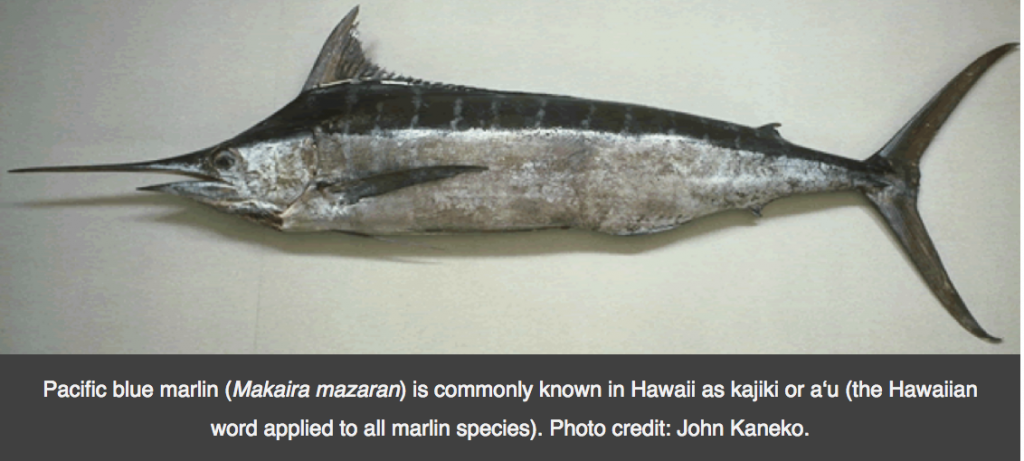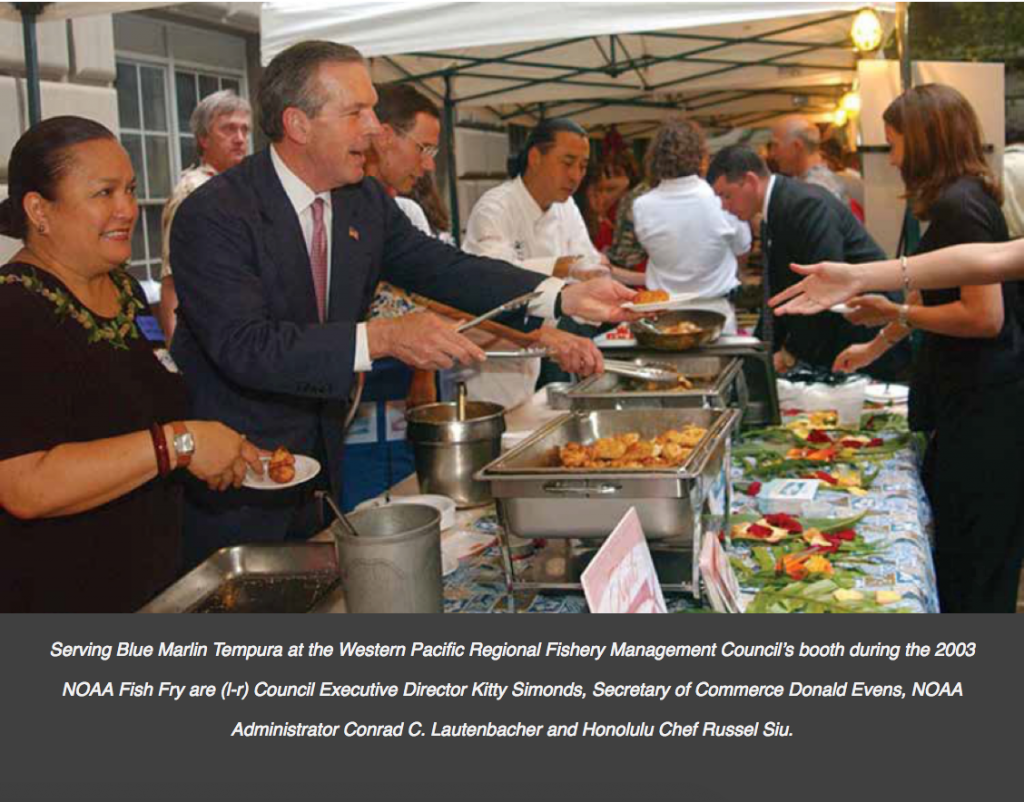HONOLULU, HI / ACCESSWIRE / August 2, 2018 / The following was released by the Western Pacific Regional Fishery Management Council:

The Western Pacific Regional Fishery Management Council is disappointed that America's seafood consumers may soon be deprived of sustainably harvested domestic marlin products should President Trump sign legislation to prohibit interstate commerce of billfish (not including swordfish) landed in Hawaii, American Samoa, Guam and the Commonwealth of the Northern Mariana Islands. The bill, introduced by U.S. Rep. Darren Soto's (D-Fla.), passed the House on June 26 and the Senate on July 30 and is now headed to the president.
"It is upsetting, in this era of tackling illegal, unreported and unregulated (IUU) fishing and the $12 billion US seafood trade deficit, that highly monitored US Pacific Island fishing and seafood communities may suffer hardship should this legislation become law," notes Kitty M. Simonds, executive director of the Western Pacific Regional Fishery Management Council.
Under current law, billfish caught by U.S. vessels that are landed in Hawaii or other U.S. Pacific Islands may be sold to markets on the U.S. mainland. More than 550,000 pounds of American-caught billfish landed in the U.S. Pacific Islands are annually marketed in the continental United States. The billfish is worth approximately $830,000 in 2017 dockside value. When the dockside value is expanded through wholesale and retail markets, the estimated annual value is approximately $2.5 million.
The commercial harvest of Atlantic billfish has been prohibited in the United States since 1988 because several Atlantic billfish species are overfished and/or subject to overfishing (e.g., blue marlin, white marlin and East Atlantic sailfish). By contrast, Pacific and Western Pacific billfish populations are not overfished nor subject to overfishing, with the exception of striped marlin, due to international fishing. A Billfish Certificate of Eligibility (COE) is required to accompany billfish to any dealer or processor who subsequently receives or possesses the billfish. The COE documents the vessel, homeport, port of offloading and date of offloading and ensures the fish is not from the Atlantic or foreign fisheries.
Chris Oliver, NOAA Assistant Administrator for Fisheries, in December 2017, said he has "full confidence in these existing management processes to sustainably manage billfish populations."
Congresswomen Colleen Hanabusa (D-Hawaii), Madeleine Z. Bordallo (D-Guam) and Aumua Amata Coleman Radewagen (R-American Samoa), in an Additional Views statement on H.R. 4528, said the legislation "will negatively impact the livelihoods of fishermen in Hawaii, Guam and the Pacific Insular Areas by closing off the only off-island market for U.S.-caught billfish." Acknowledging that several Atlantic billfish species are subject to overfishing, the Congresswomen said, "We support needed-conservation efforts in the Atlantic, but do not believe that Pacific fisheries need to be targeted in order to achieve these goals."
Secretary of Commerce Wilbur Ross, in a June 5, 2018, letter to the Western Pacific Regional Fishery Management Council, said "we believe the legislation would not advance the conservation of billfish significantly, and would block a small amount of sustainably harvested domestic product from entering commerce on the U.S. mainland."
NMFS estimates that the United States imports more than 80 percent of the seafood consumed in the nation (www.fishwatch.gov/sustainable-seafood/the-global-picture). According to NMFS data, the United States imported more than 6 billion pounds of seafood valued at more than $21.5 billion in 2017, which is more imported seafood than at any point in the nation's history.
For more information, go to www.wpcouncil.org/billfish.

About Saving Seafood
Saving Seafood is a a non-profit corporation funded by the fishing industry. Saving Seafood conducts media and public outreach on behalf of the seafood industry, operates the National Coalition for Fishing Communities, and undertakes communications efforts to keep industry members and the public aware of issues of concern. Saving Seafood works with vessel owners, fishermen, seafood processors and fishing organizations across the United States who are committed to the preservation of the resource that has provided their livelihood, and that of their American forebears, for generations.
Contact: Sylvia Spalding (808) 522-5341 or [email protected]
SOURCE: Western Pacific Regional Fishery Management Council




